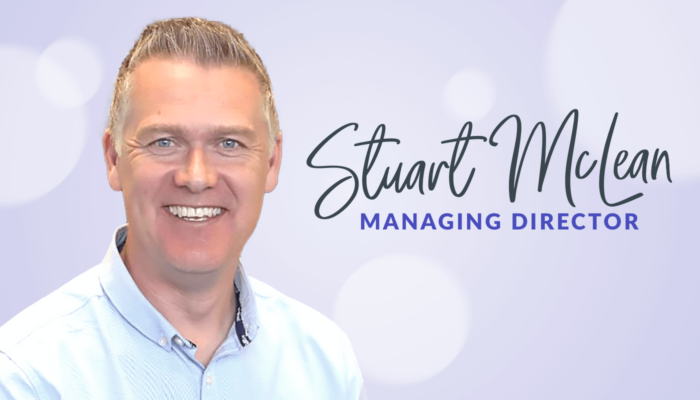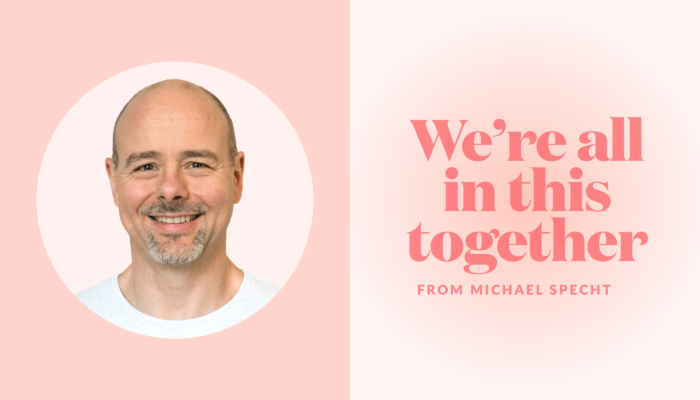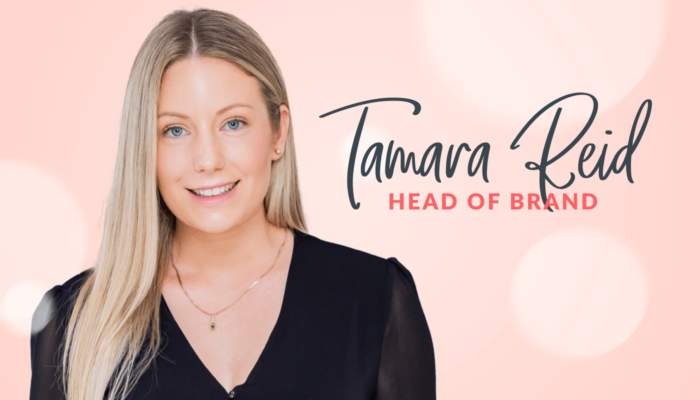Can you learn how to be an entrepreneur?
Entrepreneurship, innovation and the world of tech is pretty alluring for today's millennials, but can you learn how to be an entrepreneur?

We all know you can’t just study entrepreneurship and then call yourself an entrepreneur. I often keep my major to myself to avoid that conversation all together. I’m 23, I don’t have my own business, and due to my student loan, I probably won’t be the CEO of a startup for a long time (although I still consider winning lotto a viable option).
So has it even helped me working for a startup?
When I was 13, my friends and I made some hessian tote bags with Elmo and the Cookie Monster painted on the front and sold them at lunchtime for $5 each. Obviously they were a hit and about a month later Jay Jays launched a Sesame Street campaign. We were pretty sure they stole our idea but refrained from taking legal action.
It was the beginning of a 10 year relationship with what I call ‘entrepreneurial education’, getting involved with the likes of Young Enterprise, World Business Dialogue, Startup Weekend and the Master of Entrepreneurship at the University of Otago.
I know – how can you study something like that? Even though the word innovation is everywhere right now, it doesn’t happen all on its own. Like they say, 99% of innovation isn’t sexy. The way I see it, entrepreneurship students just want to make sure they have the tools to make that not-so-sexy stuff not-so-hard when the ball starts rolling.
My class comprised of a selection of students from a multitude of backgrounds. Our five-course program went through the stages of taking an idea to market. The final months of the degree were spent on an incubation report, a culmination of everything learned in those courses, and the bones of a real business. For me, it was about building on business acumen, studying marketing, management, finance and accounting at a Master’s level, and maintaining a practical focus.
I took the option to do my assignments on existing startups including, Escea gas fireplaces, Quick Brown Fox coffee liqueur and Yu Mei luxe leather accessories. I had to talk to people and I don’t think I read one textbook (which was a real luxury because after two undergrad degrees it makes me feel ill just looking at them). I did contract work for local startups and often went for a coffee or espresso martini with people who wanted to chat about their ideas. Studying entrepreneurship was my foundation for moving into the workforce, a place 80% of my class was trying to transition away from.
I could have worked full time for the past five and a half years, gained a whole lot of practical experience, and potentially ended up exactly where I am with a lot more money in my KiwiSaver. However, I trust my parents when they say education is never a waste of time.
Learning is something I’m pretty addicted to and I feel uncomfortable being static, though travelling as a student kept me stimulated. As graduation neared, I had to decide what to do with the rather large investment that was my education.
Unfortunately, moving to Switzerland to make homemade chicken pies and drink beer wasn’t going to fly with said parents.
A few years ago I heard about this new startup on the scene, Timely. I kept my eye on their careers page and got distracted applying for graduate jobs at corporate firms (which takes about as long as doing a degree, please get Weirdly!!) A space opened up on the Timely marketing team and after a few chats with management, who are absolute cool cats, it was all go.
I haven’t had to do a balance sheet or conduct market research, but I have had to learn about new things I was never exposed to before. That’s where the Master’s kicks in – I know how I learn and I know how to swim when thrown into deep waters.
JFDI is a classic startup attitude I initially struggled with immensely. It’s the ‘when do I ask a question’ and ‘when do I just do it’ debate. Personally, I like to plan. I like to contemplate and strategize until I’m sure I’ve chosen the best possible option, the option we all know will work out perfectly so that everyone will be happy and eat cake to celebrate.
Unfortunately, that takes time.
At Timely we do this great thing fortnightly where we all jump on Google Hangout and the tech team give us a run down of what they are doing. However, coming from a completely non-techy background, it can feel like watching Inception the first time. To make things a little easier, I get a written summary of what’s happening on the technical side of things so I can Google every second word and hope that one day I will become a pro. Making a glossary of all the acronyms is probably a little unnecessary but old habits die hard.
One place where the water gets pretty deep is working remotely. It is nothing like studying. Sure, you still don’t get stuck in rush hour traffic and you can work at the beach, but you can’t stop working just to take an 8 hour nap at 2pm.
Remote working feels like having 48 Facebook chats open while simultaneously trying to write an essay, all day every day.
I highly recommend a book written by the founders of 37Signals that helped me understand the whole #nooffice thing if you are thinking about taking the plunge. Like studying, you have to be pretty disciplined if you’re a remote worker, and it isn’t for everyone.
Unlike at University, you are allowed to fail in a start-up. In fact, it’s considered a win because you’re closer to knowing what works. Crazy talk, I know! But stick with it, the anxiety goes away.
Whether you are in high school, at University or mid-career, I think having a crack at anything entrepreneurial is an absolute blast. It doesn’t mean you want to become Richard Branson, but you might just find it turns out to be your thing.


